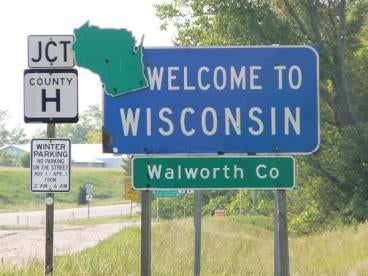Wisconsin Pharmacal Co., LLV v. Nebraska Cultures of California, Inc., 2016 WI 14
In Wisconsin Pharmacal Co., LLV v. Nebraska Cultures of California, Inc., 2016 WI 14, the Wisconsin Supreme Court held that incorporation of a defective product into an integrated product does not constitute an "occurrence" that results in "property damage."
In that case, plaintiff alleged that defendant Nebraska Cultures of California, Inc. ("Nebraska Cultures") supplied the wrong probiotic bacteria for incorporation into a dietary supplement sold as a chewable tablet. Nebraska Cultures, in turn, obtained the probiotic bacteria from another company, Jeneil Biotech, Inc. ("Jeneil"). The ingredients for the supplement were blended together and pressed into tablet form; once manufactured, the ingredients could not be separated. After shipping tablets to its customer, plaintiff learned that the wrong probiotic bacteria had been incorporated. Plaintiff recalled and destroyed the tablets. Plaintiff sued Nebraska Cultures and Jeneil and their respective insurers. The trial court granted the insurers' motion to bifurcate and stay and subsequently granted the insurers' motions for declaratory judgment, finding that there was no duty to defend. The underlying case was stayed pending appeal.
As an initial matter, the supreme court held that Nebraska Cultures' insurer had not breached a duty to defend Jeneil because Nebraska Cultures properly sought to bifurcate and stay the case pending a coverage determination. With respect to coverage under the policies, the court reiterated that the risk to be insured in the context of the standard CGL policy definition of "property damage" is that the insured's work, goods or products will cause property damage to "property other than the product or completed work itself." The court also stated that with respect to an "integrated system," damage by a defective component to the system as a whole or to other components of the integrated product does not constitute damage to other property. The court concluded that "combining a defective ingredient with other ingredients and incorporating them into supplement tablets [ ] formed an integrated system." Accordingly, incorporation of the wrong probiotic bacteria did not cause property damage to the remaining components. Likewise, the court rejected the argument that the loss of cartons, inserts, shippers, or tooling and dies associated with the tablets constituted property damage because they did not sustain any physical injury as a result of the incorrect probiotic. Similarly, the court held that plaintiff did not sustain any loss of use of the tablets because the tablets were permanently damaged.
The court also considered whether plaintiff's claim constituted an "occurrence," defined as an "accident." The court concluded that breach of a contract in supplying the wrong probiotic bacteria, standing alone, did not constitute an occurrence.
Lastly, the court held that the "impaired property" exclusion applied to the extent that there was any property damage caused by an occurrence. Notably, the impaired property exclusion applies where property damage occurs from the "failure of the insured's products to meet the level of performance which the insured warranted or represented."




 i
i


